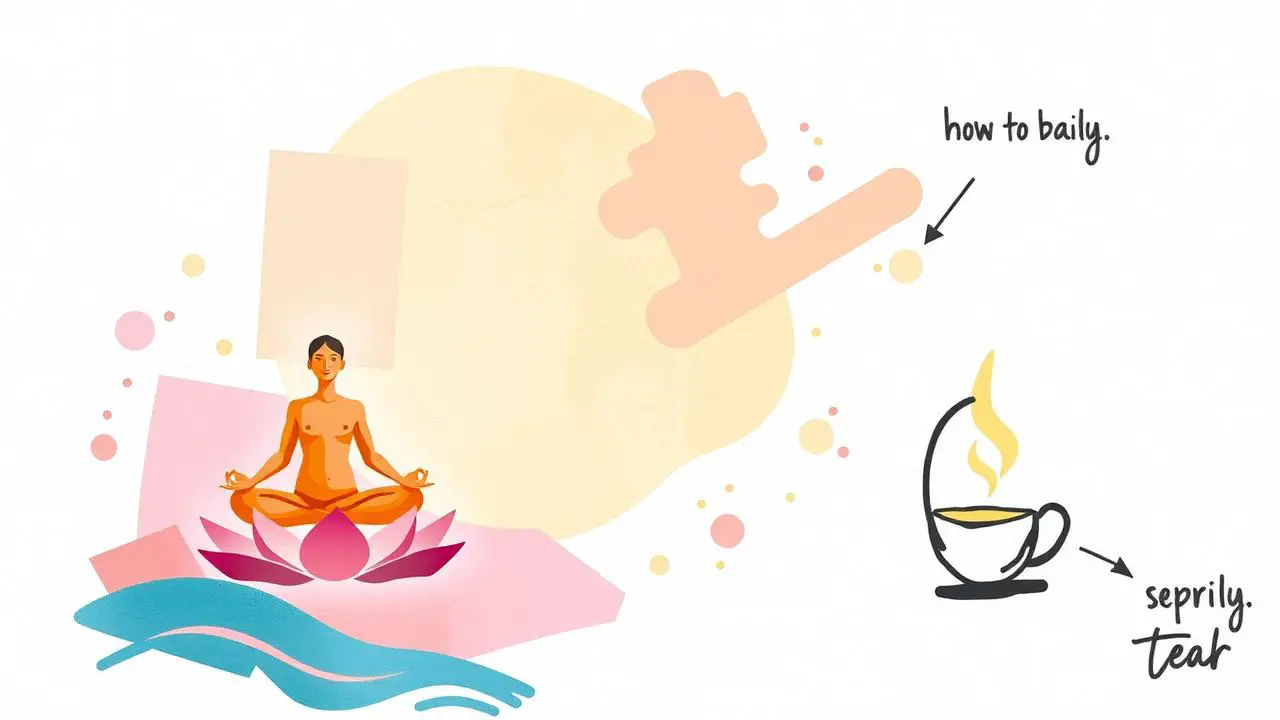Do you ever feel like your healthcare options are limited to traditional medicines and treatments? Aromatherapy might be the solution for you.
This holistic approach to healthcare has been gaining popularity in recent years, and for good reason. Aromatherapy uses essential oils from plants to promote physical and emotional well-being.
Aromatherapy is used in healthcare to promote healing and improve overall well-being. Essential oils are extracted from plants and used to create a pleasant fragrance, which can have a therapeutic effect on the body and mind. Aromatherapy can be used to help reduce stress and anxiety, improve sleep quality, alleviate pain, and boost the immune system. It is commonly used in hospitals, hospices, and other healthcare settings to help patients relax and feel more comfortable.
The use of essential oils for medicinal purposes dates back to ancient times, but it has only recently gained recognition in Western medicine. Aromatherapy can be used to alleviate pain, reduce stress and anxiety, and improve sleep.
It is a non-invasive and natural approach to healthcare that can be used in conjunction with traditional treatments or as an alternative. In this article, we will explore the history and origins of aromatherapy, the benefits it offers, and the various ways it can be administered.
History and Origins of Aromatherapy
You’re about to discover the fascinating backstory of how this ancient practice came to be, and you’ll be amazed at the power and wisdom of those who discovered it.
Aromatherapy is believed to have originated in ancient Egypt, where essential oils were used in religious ceremonies and for medicinal purposes. The Egyptians were known for their love of beauty and fragrance, and it is said that they used essential oils to create perfumes and cosmetics.
The popularity of essential oils spread throughout the Middle East and eventually reached Europe during the Crusades. The evolution of aromatherapy continued throughout the centuries, with the invention of distillation in the 11th century allowing for the extraction of essential oils from plants.
In the 20th century, aromatherapy became more widely recognized in Western medicine, with the French chemist Rene-Maurice Gattefosse coining the term ‘aromatherapy’ and using essential oils to treat soldiers during World War I. Understanding essential oils and their properties is crucial to the practice of aromatherapy, as each oil has its unique composition and therapeutic benefits.
Understanding Essential Oils and Their Properties
By learning about the properties of essential oils, you can gain a deeper understanding of how they can potentially benefit your well-being. Essential oils are highly concentrated plant extracts that are obtained through various methods of essential oil extraction such as steam distillation, cold pressing, or solvent extraction. These oils are classified and graded based on their purity, quality, and chemical composition.
The quality of an essential oil is determined by the plant species, the part of the plant used, the extraction method, and the growing conditions. Essential oils have been used for therapeutic purposes for centuries due to their potential health benefits. They are commonly used in aromatherapy to improve emotional and physical well-being.
Studies have shown that essential oils can be effective in relieving stress, anxiety, and depression, as well as reducing pain and inflammation. Each essential oil has its unique properties and therapeutic uses, which can be further enhanced when combined with other oils. Understanding the properties of essential oils is essential in selecting the right oils for your specific needs.
Now, let’s explore the benefits of aromatherapy in healthcare.
Benefits of Aromatherapy in Healthcare
Oh, the wonders of fragrant oils! These potent plant extracts have proved to be quite the game-changer in the world of wellness. Aromatherapy, the practice of using essential oils to enhance physical and psychological well-being, is gaining recognition as a complementary therapy in healthcare.
Research studies have shown that aromatherapy has numerous benefits, including reducing stress, anxiety, and depression, improving sleep quality, relieving pain, boosting mood, and enhancing cognitive function. One of the most notable benefits of aromatherapy is its ability to promote relaxation and reduce stress levels.
The scent of certain essential oils, such as lavender, chamomile, and ylang-ylang, can help calm the mind and body, and ease feelings of tension and anxiety. In addition, research studies have found that inhaling essential oils can have a positive effect on the nervous system, reducing the production of stress hormones and promoting a sense of calm and well-being.
With the many benefits of aromatherapy, it’s no wonder that more and more healthcare providers are incorporating this practice into their treatment plans. As you explore the benefits of aromatherapy in healthcare, it’s important to understand how essential oils can be administered.
Inhalation, topical application, and diffusion are the three main methods of aromatherapy. Each method has its own unique benefits and can be used to treat a variety of health concerns. So, let’s delve into the different ways that essential oils can be used to support your health and well-being.
Administering Aromatherapy: Inhalation, Topical Application, and Diffusion
Let’s discover how essential oils can be inhaled, applied topically, or diffused to enhance your overall well-being and support your health.
Inhalation is the most common method of using essential oils in aromatherapy. By inhaling the scent of essential oils through your nose, it can stimulate your brain and trigger various physiological responses, such as reducing stress, improving mood, and enhancing your respiratory system. You can inhale essential oils by placing a few drops on a tissue, using a diffuser or a vaporizer, or simply breathing in the scent from a bottle.
Topical application is another popular method of using essential oils. It involves applying diluted essential oils directly to your skin, allowing them to be absorbed into your bloodstream and body tissues. This method can be used to alleviate various skin conditions, such as acne, eczema, and rashes, as well as muscle pain and soreness. However, it’s important to choose the right essential oils for specific conditions and to dilute them properly with a carrier oil to avoid skin irritation or allergic reactions.
Now that you know about the benefits of different application methods and how to choose the right essential oils for specific conditions, let’s transition to the subsequent section about aromatherapy for pain management.
Aromatherapy for Pain Management
Relieving discomfort with the power of plant-based oils is a practical and popular practice. Aromatherapy for pain management is a natural remedy that’s been used for centuries. Essential oils like lavender, peppermint, and eucalyptus are known for their analgesic and anti-inflammatory properties.
These oils can be used topically, inhaled, or diffused to relieve pain caused by migraines, arthritis, and muscle soreness. The effectiveness of aromatherapy for pain management varies from person to person, but many people find relief without the need for medication or invasive procedures.
Alternative therapies like aromatherapy are gaining popularity as people look for natural ways to manage their health. Aromatherapy for pain management is just one example of how plant-based oils can be used to promote wellness. The benefits of aromatherapy extend beyond pain management, and many people use essential oils to reduce stress and anxiety.
In the next section, we’ll explore how aromatherapy can be used to promote relaxation and emotional well-being.
Aromatherapy for Stress and Anxiety Reduction
Reduce stress and anxiety naturally with the power of plant-based oils. Aromatherapy is a popular natural remedy that uses essential oils to promote relaxation and calmness. It’s a holistic approach to healthcare that aims to treat the whole person rather than just the physical symptoms of stress and anxiety.
By inhaling essential oils or applying them topically, the body and mind can benefit from their therapeutic properties. Essential oils like lavender, chamomile, and bergamot have been shown to have a calming effect on the nervous system, reducing feelings of stress and anxiety. They can also help to improve mood and promote a sense of well-being.
Incorporating aromatherapy into your daily routine can be a simple yet effective way to manage stress and anxiety naturally. So if you’re looking for a holistic approach to healthcare, try incorporating essential oils into your life and experience the benefits for yourself.
Transitioning into the next section, aromatherapy can also be used to improve sleep.
Aromatherapy for Improved Sleep
Get a good night’s sleep with the power of natural remedies like essential oils. These oils have been known to promote relaxation and help you drift off into dreamland with ease, like a soft blanket wrapping you up in comfort.
Aromatherapy is an effective way to improve sleep quality and duration, and it has been used for centuries to soothe the mind and body.
Relaxation techniques are essential when it comes to getting a good night’s sleep. Aromatherapy is one of those techniques that can help you relax and unwind after a long day. By using essential oils, you can create a calming atmosphere that promotes relaxation and sleep.
However, it’s important to understand the safety considerations and precautions for aromatherapy use in healthcare settings to ensure that you are using it safely and effectively.
Safety Considerations and Precautions for Aromatherapy Use in Healthcare Settings
Now that you’ve learned about how aromatherapy can improve your sleep, it’s important to understand the safety considerations and precautions that come with its use in healthcare settings.
While aromatherapy is generally considered safe when used properly, there are still potential adverse reactions and contraindications to consider. For example, some people may be allergic or sensitive to certain essential oils, which can cause skin irritation or respiratory problems.
Additionally, some essential oils may interact with certain medications or medical conditions, making them unsuitable for use in certain situations.
Regulatory issues and legal concerns also come into play when using aromatherapy in healthcare settings. It’s important for healthcare providers to be properly trained and certified in aromatherapy, as well as to follow guidelines and regulations set by their governing bodies.
This ensures that proper protocols are followed, and that patients are receiving safe and effective care. In addition, healthcare providers must also be aware of potential liability issues that may arise from the use of aromatherapy, and take steps to mitigate those risks.
By taking these factors into consideration, healthcare providers can effectively incorporate aromatherapy into their practice while ensuring the safety and well-being of their patients.
Can Aromatherapy Massage Be Used as a Healthcare Treatment?
Aromatherapy massage process involves using essential oils to enhance a traditional massage. This combination may have potential health benefits, such as reducing anxiety and improving sleep quality. While more research is needed to fully understand its effects, aromatherapy massage can be a complementary treatment in healthcare.
Conclusion
You’ve now learned about the fascinating world of aromatherapy and how it’s used in healthcare.
With its origins dating back to ancient civilizations, aromatherapy has been used for centuries to promote physical and mental well-being. Essential oils, the foundation of aromatherapy, are potent and complex substances that offer a range of therapeutic benefits.
From pain management to stress reduction, essential oils can be administered in various ways, including inhalation, topical application, and diffusion. Aromatherapy has been found to be effective in healthcare settings, improving sleep, reducing anxiety, and providing pain relief.
Did you know that a study conducted by the Global Wellness Institute found that aromatherapy was the fastest-growing sector of the global wellness industry in 2018? This statistic highlights the growing interest and recognition of the therapeutic benefits of aromatherapy in healthcare.
As more research is conducted, the potential of aromatherapy to complement traditional medical treatments continues to expand. Remember, when using essential oils, it’s important to take safety precautions and consult with a healthcare professional before using them.




